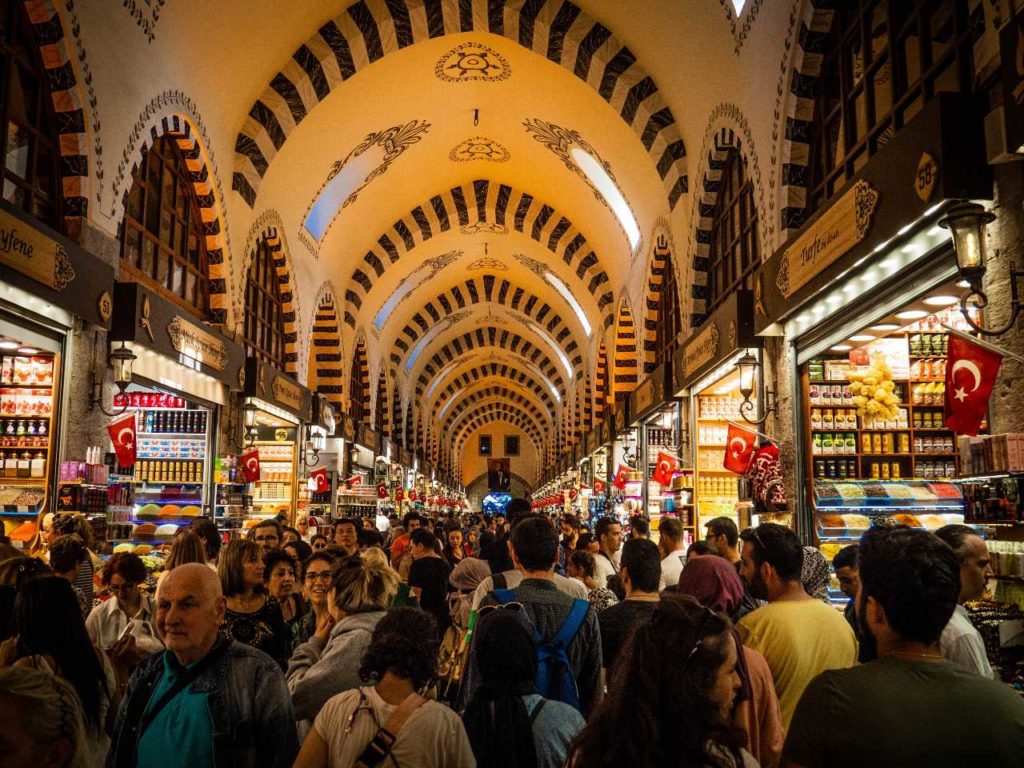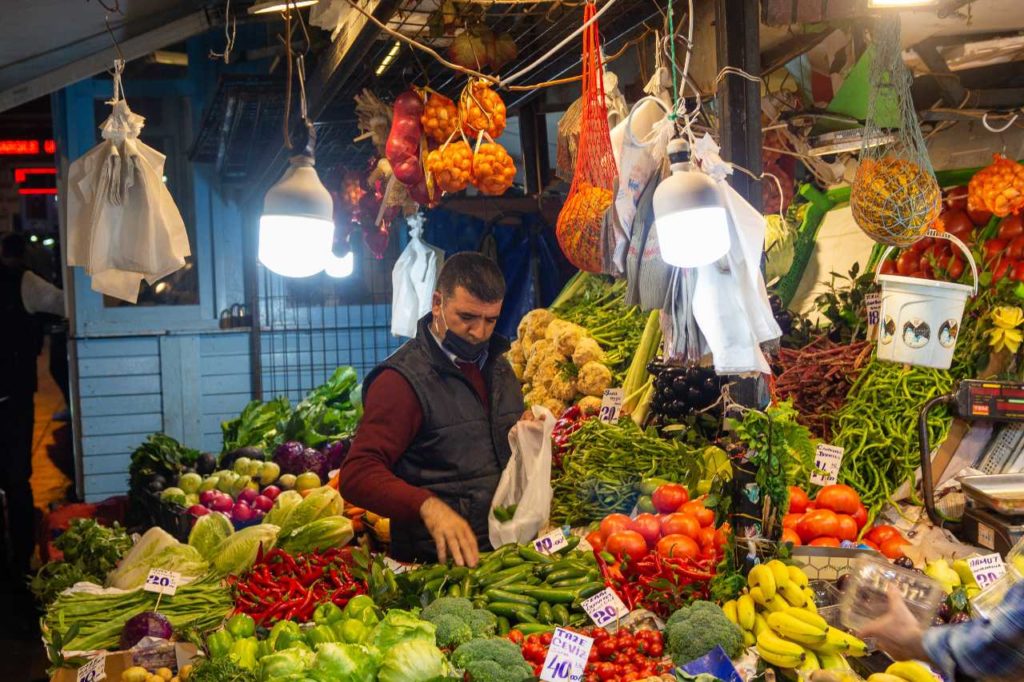The other night I was sitting with my son on the sofa, trying to read a book with him, while on the TV the news droned on and on about the economy. In the kitchen my wife and her mother tuned in as they prepared dinner, and their voices punctuated the reports with cries of “Al-lah! Al-lah!” and “Ohhhh!”
“We can forget about going to America anytime soon,” my wife announced despairingly. I nodded grimly, mentally totting up the cost of airline tickets, conjuring a gloomy picture of arriving in New York with the pitifully small amount of dollars our hard-earned liras have been able to fetch.
Inflation, or enflasyon: It’s all anybody talks about nowadays. The lira going down, down, down, prices going up, up, up. Everybody’s worried about money, about the economy.
The ongoing drama of the lira-versus-the-dollar (at 14, 15, 17!) has been incessant, like a ticker on a trading floor or an oddsmaker at the race track. You just can’t get away from it, at home or work or anywhere. Not even in sleep, judging by what we see on social media. “All I want for Christmas is $10,000 – cash,” one friend posted on Instagram. Yes, everybody is dreaming of dollars, or euros, or sterling, or Bitcoin if they are really dreaming (Dream on, brother, or sister!).

And yet we wake up with liras. The social media, the TV, the smoking area and café confabs, rattle despairingly on. Wild speculations are made, doomsday predictions, some even talk openly of leaving the country (Yeah, with what? Good luck!)
“Yes, I wish I could just go somewhere else,” one of my associates says. “But I can’t afford options right now!”
Indeed, confidence in the lira, as well as the country’s economy, has evidently waned so much that the Turkish government in recent days was prompted to enact special measures (savings guarantees) in an effort to stabilize the lira, to reassure the public. These measures evidently had some effect, for by mid-week the lira was back down to about 12-1 against the dollar, although some analysts warned that the lira had still a long way to go to make up for the past year’s losses. Others questioned where the already debt-ridden Turkish government was going to find the money for this new measure of protecting the public’s savings against future devaluations.
OK, I’m not an economist, so that’s enough nuts and bolts for today. Besides, what is it that most of us really care about? Prices, right? Especially as yabancılar, since most foreigners here don’t have the support systems that they enjoy back home. Some may even worry that if price hikes continue, they might not even, should the case arise, be able to afford a ticket to fly back home.
The worst part is at the supermarket – hell, everywhere in the city. Everything costs more, in some cases a lot more. The statistics vary, but everyone agrees enflasyon is somewhere in the double digits and is going up all the time. It’s been my glum joke for some time now that, “You can’t step outside the door without dropping 100 lira!”
I think of one of my colleagues at the university. She’s an hourly wage teacher, not full-time. These days, she and the other hourly teachers find themselves having to take on every available class they can find.
We talk about the discouraging task of going to the supermarket.
“It used to be that only things like laptops were expensive,” my colleague said. “So I could always just say, ‘I don’t need a new laptop.’ But nowadays, even things like milk, cheese – basic things! Everything is expensive!”
The students concur. Of course, university students always grumble about the costs of textbooks, materials, and in most cases, their parents are the ones footing the bills. But my heart goes out to them, to some degree. After all, I remember when I was a university student, and how even back in those prehistoric times, university textbooks seemed a bit overpriced. And true to the current trends here in Turkey, with the new term prices for books and materials have gone up along with everything else.

My wife and I are fortunate in several respects. We both have relatively secure, long-term positions at stable institutions. We are salaried, with benefits. For example, our son recently contacted a severe respiratory infection and had to stay nearly a week in the hospital. Thanks to my private insurance, everything was paid for (except the hospital meals, for which I paid a modest 200 lira total). Imagine if we’d been uninsured? How much would the hospital stay and treatment have set us back? My wife and I, though greatly relieved at our son’s recovery (most important!), shuddered at the prospect.
Furthermore, because we own our flat in Üsküdar outright, rent is not one of our worries. I think back to my single days, as a language school teacher and flat-sharing in Kadıköy. Firstly, in this economy, I wouldn’t want to put my faith in language schools, which can be unreliable and shaky even in the best of times. Secondly, I wouldn’t want to be at the mercy of a landlord who (regretfully) informs me that as of next month, the rent will be raised God knows how much.
Yes, in these precarious times, there is much to be said about stability, where ever you can find it. It certainly helps to have money, but if the past couple years have taught us anything, money certainly isn’t everything.
“Why don’t you go back to America?” some Turks ask, from time to time. They imagine themselves in my place, and for the life of them, can’t see why I’m not already on a plane back to the magical kingdom of dollars and (supposedly good) sense.
Well, having lived here for more than a decade, Istanbul has become my home. As I said, my wife and son are here, our flat is here. We are invested here. One can only hope that the country and its people will ride through this current wave of uncertainty, as they have so many times before. I do have confidence in Turk resiliency, if not so much the currency.
James Tressler is a writer and teacher living in Istanbul.











Love the title of the article as I am in the same boat!! Thanks for sharing!